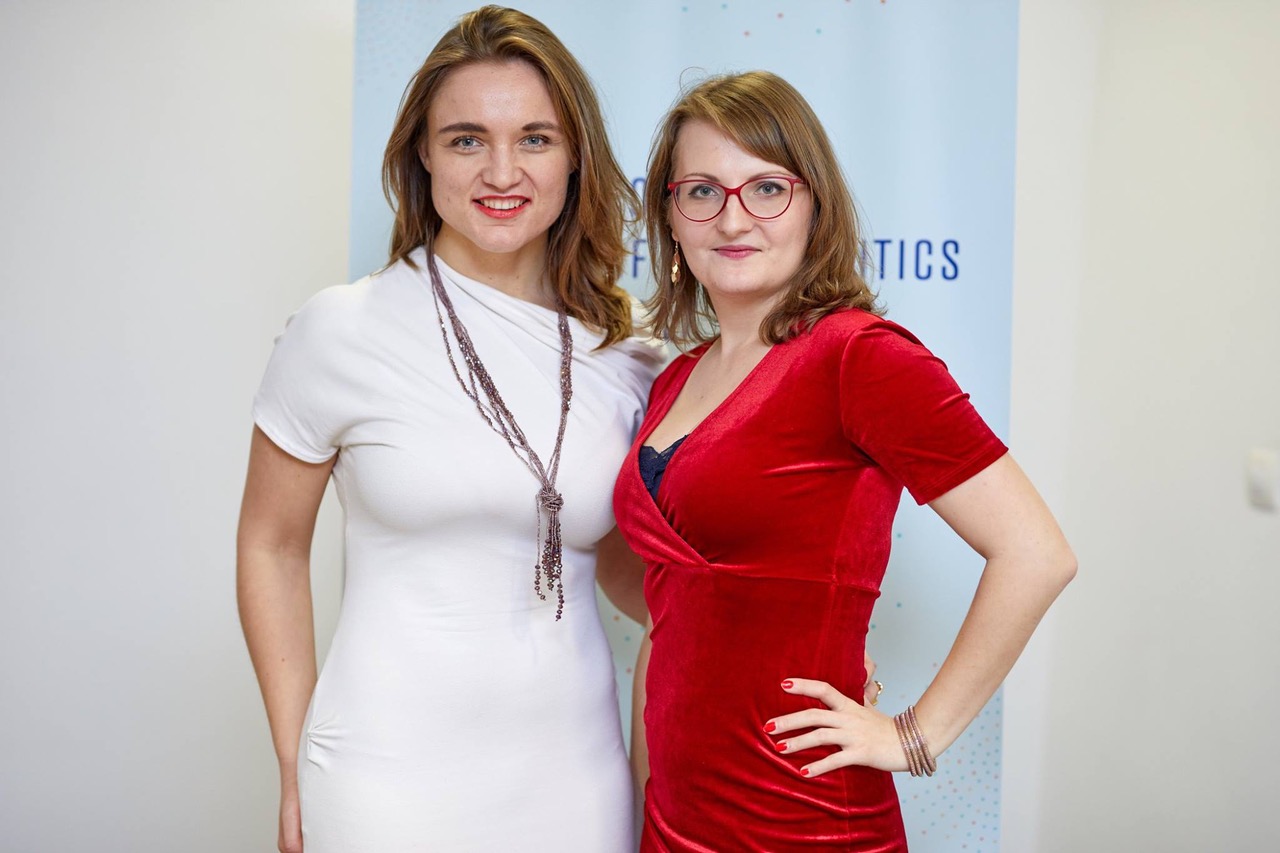“Values and Meanings in Politics”

Andrea Tittelová, Founder and CEO of Youth Politics Education and Co-founder of Forum Dobrej Politiky with Lubica Ragulová, her business partner and co-founder of Youth Politics Education
Andrea, I have been nostalgically remembering Czechoslovakia as one state. You have not lived during these times. How do you perceive the Czechoslovakian past and how do you perceive Czechoslovakia nowadays?
I saw an image of Czechoslovakia through the lens of my grandfather who was a politician in the Dubcek era and afterwards I was taught about mementos of Czechoslovakia in the context of the Velvet Revolution… the memory of two countries which wanted to stand on their own and show their statehood. Nowadays, Czech Republic occurs to me as a country where entrepreneurship is greatly increasing and innovations are present. On the contrary, the political situation shows the huge polarity of the nation. Czech Republic strikes me as a dynamic country and Czechs, as the nation demonstrates, very creative. In May 2018, we are preparing a Day on Innovative Politics in Prague and while organising this event, I can really feel how open and flexible the Czechs I work with, are and do behave. Additionally, civic society protests against the mandate of Mr. Ondracek have shown the deeply rooted legacy of Vaclav Havel in Czech Republic even after so many years of progress and development.
Czechs and Slovaks tend to compare one to another. What could we learn from one another?
I see that Slovaks are mostly driven by competitiveness once being in the presence of any Czech national. We do take different reactions and approaches when we, Slovaks need to cooperate with Czech colleagues. I will point out one thing: the thing that Czechs could learn from Slovaks or get inspired by is to show more emotions in their decision processes and in the way they pursue collaboration. The Slovaks can get inspired from Czechs from their drive, innovativeness and creativity.
You are organizing a conference on Innovative Politics in Prague in May. This conference will discuss new technologies, enlarging engaged groups and finding new answers to current political challenges. What is the main aim of the conference?
Innovative politics 2018 is an event where people who have contributed to policy changes in their respective countries exchange their ideas and improvements they have made in the area of public politics or citizens’ initiatives enhancing the changes in the sector of politics and policy making. We see that the current state of politics and the way of policy making isn’t currently based on innovation, the needs of the citizens, or grass root initiatives. We see that the world of business and start-ups has increased in innovation and the sector of politics and policy making risks being left behind. The intention is to open the space for debate about innovative approaches in politics and policy making. We will bring people who are in action in different countries in Europe who have demonstrated successful grass root approach. We are looking for new approaches to policy making that can bring positive value and directly influence the quality of life in our region. We are bringing the people who have taken their stand for innovating the public sector and policy making and have demonstrated this new way in their respective countries. The criteria is to bring and work with the people who have driven large scale innovations for this sector.
You proudly describe yourself as the ambassador of women and young people in politics. What is the achievement you are most proud of?
I am honoured we were selected among semifinalists of Forbes 30 under 30 Europe in the category law and policy. I am proud of the legacy Youth Politics Education has left in Slovakia from the 4 years of its existence. We have managed to deploy many of our students of Youth Politics Education in Slovakia, in Switzerland and also some of our alumni ran their own campaigns for the municipal elections in 2017. I feel proud that YPE, through collaboration with Dialogue, (Centrum Dialog, a non-profit collaborative which was instrumental in creating the National Values Assessment), have managed to make differences in society by organising the Forum of Good Politics. And I feel proud to be the ambassador and the speaker of already 3rd Constellation Summit 2018 organised by Global Institute of Extraordinary Women.
Besides politics, you are the proud owner of a winery. What has wine-making taught you?
To understand the Discipline. I found real love for the soil in the vineyard. If you decide to postpone some small thing in business it might have a big impact, but also it could have no impact. But if you break the rhythm of the vineyard, the rhythm of nature, the rules when to cut the branches, when to seek out the parasites and when to protect the branches with pesticides, you can lose all of your fruits and you will not produce any wine in a specific year.
Your final words for Czech and Slovak Leaders Magazine readers…
I am an advocate of consciousness and femininity in politics and public administration. I believe that our future will depend on three key principles: dialogue, the ability to listen, and collaboration. I believe that the principle of feminine energy present in national governments and in society, and collaboration between men and women will lead us to wealth and peace in the world. I believe also that taking a stand for something will be the vehicle for societal changes. As one of my role models Lynne Twist says “When you take a stand, it actually does shift the whole universe and unexpected, unpredictable things happen.”
By Linda Štucbartová

